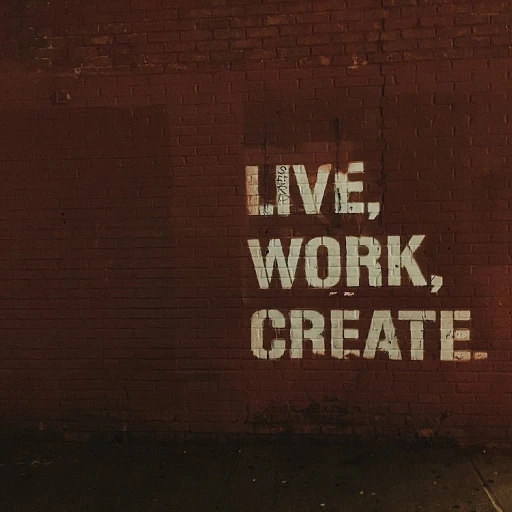Understanding Background Checks
Introduction to Background Checks
Background checks have become a fundamental part of the hiring process for many employers, serving as a crucial tool to safeguard the workplace and ensure the integrity of a potential candidate. These checks often include reviewing a candidate's criminal history, which can encompass pending charges, previous convictions, and any other details that might be present in criminal records. The primary aim is to ensure that the individual’s past does not pose an immediate threat to the organization or its employees.
A background check generally involves more than just a simple glance at a criminal record. Employers often extend their scrutiny to include education and employment history, verifying references, and in some cases, conducting credit checks. Various factors determine the extent and depth of a background check, including the nature of the job, the industry, and the specific responsibilities thereafter. It’s worth noting that not all criminal charges will appear in a background check—pending charges especially can be a gray area, often varying by jurisdiction and the specific laws governing that locality.
The law plays a pivotal role in shaping how background checks are conducted and what information can be legally reported to employers. It's crucial for both employers and candidates to understand that what shows up on a background check can significantly influence employment opportunities, sometimes raising concerns about privacy and the rights of the individuals whose records are being investigated. For further insights into understanding the latest trends in criminal record checks, you can explore more details in this
informative blog post.
As the world grows more attentive to issues of privacy and discrimination, the landscape of background checks continues to evolve. Emerging trends in legislation, individual rights, and technology are all reshaping the way background checks are conducted, with significant implications for both employers and job candidates alike. Understanding these changes is critical for informed decision-making in the hiring process.
Pending Criminal Charges: What Are They?
Defining Pending Criminal Charges and Their Implications
When navigating the realm of background checks, the term ‘pending criminal charges’ often emerges as a point of concern. A pending charge occurs when an individual has been formally accused of committing a crime but has yet to be convicted or acquitted. Unlike a completed record, where the legal process has concluded, these charges remain in a state of limbo, lacking a definitive outcome.
Pending charges can significantly influence the information that may appear during a background check. They can be documented differently compared to finalized cases. This is particularly relevant for employers conducting employment background checks as they assess a candidate's suitability for a position. These checks could potentially show pending criminal records, influencing hiring decisions.
The appearance of pending charges is not merely an administrative formality; it carries latent implications. For a candidate, having pending criminal charges listed can lead to obstacles during the hiring process. Companies with a strict policy on maintaining a clean criminal record may hesitate to move forward with an application if such charges are revealed.
For those dealing with such a scenario, it's also crucial to understand that the outcome of the pending charges — whether they lead to a conviction, a dismissal, or an exoneration — can drastically alter the findings of a later background check. Furthermore, defense attorneys often work with clients to manage how these charges will be approached, bearing the long-term employment implications in mind.
This complexity highlights the necessity for both individuals and employers to stay informed about the latest trends in how criminal record checks are processed
read more here. As laws evolve and societal attitudes shift, these trends continue to shape and redefine the implications of pending charges within the context of background checks.
Legal Variations by Jurisdiction
Legal Variations in Different Jurisdictions
The landscape of background checks and how pending charges are reported can vary significantly depending on the jurisdiction. Notably, there are different laws and regulations that determine whether and how pending charges appear on background checks. This lack of uniformity creates complexities for employers, candidates, and legal professionals alike.
In some jurisdictions, pending criminal charges will show prominently in a background check, while others may have restrictions on their disclosure. For instance, various U.S. states have adopted "ban the box" laws, which prevent employers from inquiring about criminal history, including pending charges, on initial job applications. Instead, the timing of such inquiries is delayed until later in the hiring process.
Employers need to be aware of these jurisdictional differences to ensure compliance with local laws. The failure to do so can result in legal repercussions and could negatively impact the hiring process. Consequently, background checks require a careful understanding of state and local laws to navigate potential legal pitfalls, especially when dealing with the complexities of pending criminal charges.
For candidates, understanding how these legal variations can affect employment opportunities is crucial. Consulting with a defense attorney might provide valuable insights into how a pending charge may appear in a specific jurisdiction. Additionally, the evolving nature of background check practices and exploring the latest trends in education and employment verification adds another layer of complexity to consider in different legal environments.
Impact on Employment Opportunities
Employment Opportunities in the Face of Pending Charges
Navigating the hiring process with pending criminal charges can be complex and challenging for both candidates and employers. When a pending charge shows up on a background check, it often brings with it a host of concerns about the candidate's suitability for a position. Here, we break down the impact such information can have on employment opportunities.
Employers are typically cautious when it comes to hiring individuals with any hint of criminal history. An employer’s decision to hire may be influenced significantly if background checks reveal pending criminal charges. These charges show potential legal hurdles that could complicate the candidate’s ability to fulfill job responsibilities. Whether or not these charges appear in background checks is primarily determined by the laws governing criminal records in the jurisdiction where the check is conducted.
The "ban the box" movement, which aims to prevent discrimination based on criminal history, provides some relief to job seekers. However, it doesn’t completely remove the impact of a pending charge; it merely delays the point at which this information may be considered in the hiring process.
Employers must comply with federal and state employment laws that regulate the use of criminal records in hiring decisions. Legal counsel, often in partnership with a defense attorney, can guide employers in understanding what to look for in criminal background checks and how to interpret the presence of pending charges. The key here is ensuring fair treatment while also safeguarding business interests.
It’s important for candidates to understand how pending charges can affect their job prospects. Equipping themselves with legal knowledge and seeking assistance from a qualified attorney can help mitigate potential issues. In addition, being upfront about the status and nature of pending charges can demonstrate transparency to potential employers, fostering trust and potentially improving employment chances.
Ultimately, the interplay between background check findings and employment opportunities is nuanced. Employers weigh potential risk against skill and fit for the role, making each hiring decision a unique intersection of legal, ethical, and practical considerations.
Privacy Concerns and Rights
Balancing Privacy Concerns and Candidate Rights
Respecting privacy and individual rights becomes paramount in the intricacies of navigating background checks, especially when dealing with pending criminal charges. Candidates often worry about how their future employment opportunities might be impacted while their legal proceedings are unresolved.
Employers conducting background checks typically aim to understand a candidate's criminal history thoroughly. However, they must also respect laws designed to protect job seekers from discrimination. Legal protections, like "ban the box" laws, ensure that pending criminal charges must be handled with care. These regulations restrict employers from inquiring into criminal record history during initial hiring stages. It's designed to give candidates a fair chance at employment based on qualifications rather than their legal encounters.
Understanding when and how pending charges appear in background records varies depending on regional laws. Employers might see a pending charge during a check, but ethical hiring practices demand assessing the relevance of this information to the specific position.
Individuals have the right to privacy, even when facing legal challenges. It's crucial for employers to weigh the necessity of uncovering criminal records against potential privacy infringements and ensure they're in compliance with the law while upholding ethical standards in hiring processes. This balance ensures that individuals are not unfairly judged based on situations that may change, such as charges that don’t lead to convictions.
Trends in Background Check Practices
Current Developments in Background Check Strategies
In our modern era, the application of background checks is evolving significantly, influenced by technological advancements and shifting norms. Employers are continually seeking efficient methods to verify a candidate's criminal history while navigating the complexities of laws surrounding pending charges and convictions.
One noticeable trend is the integration of comprehensive digital tools that streamline the hiring process. Technology now allows employers to access and analyze criminal records faster than ever before. This efficiency is crucial when considering pending criminal charges that might not yet show on traditional checks. The ability for checks to reflect up-to-date criminal backgrounds is becoming a necessity, especially as legal standards and practices shift.
Furthermore, the legal landscape is seeing modifications in response to privacy concerns, accentuating the importance of adhering to local, state, and federal laws. The "ban the box" movement, which advocates for removing questions about criminal convictions from job applications, illustrates the push for more equitable hiring practices. This approach aims to ensure candidates are evaluated based on their qualifications, not merely their criminal record.
Privacy concerns are also leading to stricter regulations about what can be disclosed in a background check. For instance, some laws limit the inclusion of certain minor infractions or pending charges from appearing on background reports, emphasizing fairness and protection for job applicants.
Amid these changes, employers and candidates alike must stay informed about the latest developments in background check trends. Understanding these practices enhances the transparency and efficacy of the hiring process, safeguarding the rights of all parties involved. As we continue to see these trends evolve, the balance between protecting privacy and ensuring security will remain a focal point in the conversation on employment background checks.








